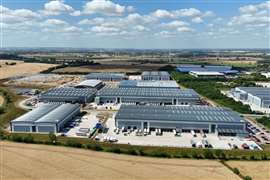Keyhole surgery
27 November 2014
Australian Decommissioning Services was tasked with the dismantling of a redundant pellet plant rotary dryer, dryer feed bins, conveyors and dust collecting system including ducting on behalf of Arrium Mining’s Whyalla plant in South Australia.
The main challenges of the contract included working within the area of a 24/7 operating plant, with resulting interaction with the client’s workforce, plant and equipment. ADS also had to ensure that there was no interruption to ongoing plant processes or risk to employees, contractors or visitors, and finally dealing with significant continual threat of dust production for ADS and Arrium staff and for the broader Whyalla township.
The Pellet Plant was badly corroded, therefore prior to commencing works ADS had to remotely assess walkways, supports and structures. The corrosion also limited the access for isolation conformation by the owner for all electrical and other energy sources. ADS had to implement a strict system to ensure it had proof of isolation before any work could commence. Significant time was spent checking both ends of cables for air gaps and ensuring pipes had all drains and vents open before any cutting could start.
The plant is located within a highly environmentally sensitive area, with the primary focus of the sensitivity being dust leaving site and entering the neighbouring town. Throughout ADS’s works the site remained under continuous surveillance for fugitive dust leaving the site. Zero breaches were reported for the project.
Dryer 2801 sat on top of 18 m (59 ft) concrete plinths and had been redundant for many years. Due to its height and access restrictions, the corroded condition and overall weight of the dryer drum was unknown.
ADS’s engineers calculated the weight of the dryer since without accurate weights the crane size required would need to have 50% safety capacity added. ADS overcame this challenge by jacking up the dryer drum and weighing each end to give a much more accurate total weight of 89 tonnes. This allowed the use of a local 500 tonne Grove mobile crane to lift and lower the dryer drum in one section. The length of the dryer required ADS to hire Australia’s largest spreader bar and the lift went off without incident.
Significant corrosion over time meant that the bins and conveyor systems had restricted access. The corrosion impacted walkways and handrails, making it unsafe to utilise any of the existing access routes. All works was undertaken through the use of elevated work platforms. ADS progressively separated bins and individually developed engineered trip plans, according to which strategic legs were cut to enable each bin to be tripped and processed on ground. Conveyor gantries were pre-cut and then attached to secured lifting points and an appropriate sized crane, with final cuts then being made and each gantry lifted and lowered to the ground and then processed into scrap. This was then loaded out in heavy transport vehicles off site.
Motors and gearboxes were carefully salvaged at the clients request and will be re-used within the operational site.
The dryer concrete plinths and the dryer rolling gear had to be removed - ADS’s 90 tonne Jewel front end equipped high reach excavator with a hydraulic pulveriser/shear processed the plinths to ground level without incident - the height and the close proximity of the plinths to the operating plant required the additional reach of this machine to ensure the process occurred under controlled demolition conditions.
Walkways leading to areas where plant had been removed had handrails installed and openings re-cladded and made safe. The operational site was only required to cease operational works while the large crane lift of the dryer occurred. At all other times works were undertaken within the company’s exclusion zone within the operating site with no incidents.
At peak, a workforce of 15 was deployed to carry out the works, operating in a single shift. In all the work generated 750 tonnes of scrap steel and 1,500 of concrete, all of which was recycled.




